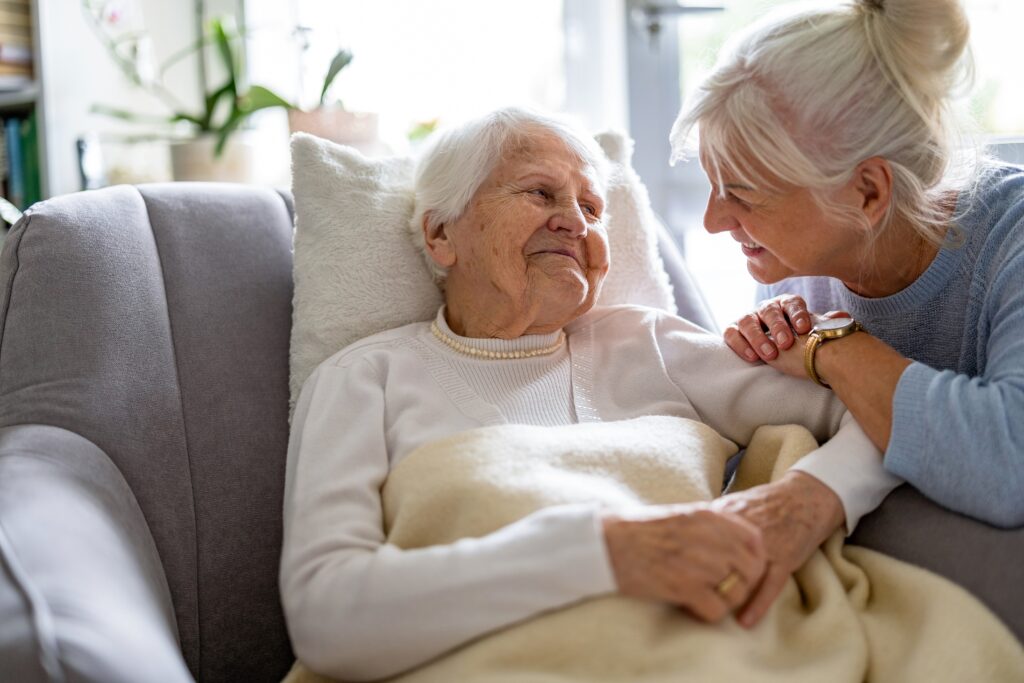Caring for a Loved One With Dementia: What No One Tells You (But Should)
Welcome to the world of caregiving – where love runs deep, but sleep runs short.
When someone you love is diagnosed with dementia, you don’t just become a caregiver. You become a detective, a nurse, a grief sponge, a comedian, and sometimes… a shadow. It’s lonely, chaotic, and absolutely heart-wrenching – and no amount of brochures or support group flyers really prepare you for it.
But you’re not alone. And you don’t have to figure it out blindly.
Let’s talk about real-life caregiving, the kind that doesn’t make the news – but steals your time, sanity, and sometimes, your joy.


Early Days: “They Seem Fine… Until They Aren’t”
In early-stage dementia, your loved one might still do many things on their own – cook, walk, dress. But something’s off. They forget appointments, repeat stories, or misplace keys in the fridge.
You wonder: Is this just aging? Or is this something more?
What helps:
Keep a “Memory Journal.” Note subtle changes. This becomes gold for doctors later.
Use visual cues. Label drawers or place reminders on doors – “Keys here,” “Toilet this way.”
Simplify choices. Offer two shirts instead of an open closet. Too many options = stress.
Mid-Stage Mayhem: When Routine Becomes Survival
This is when things get heavier. You’re suddenly helping with hygiene, redirecting mood swings, waking up at 2 a.m. because your loved one thinks it’s breakfast time.
You start whispering “I’m fine” while Googling ‘How to not lose your mind as a caregiver.’
What helps:
Create a Care Station. A rolling cart with wipes, briefs, medications, and spare clothes.
Build your Emergency Folder. Copies of meds, contacts, allergies, legal docs – ready by the door.
Establish “anchor activities.” Simple rituals like singing a song after dinner or brushing teeth at the same time daily create calm in a changing mind.
Late Nights, Late-Stage: Living in a Different World
Now your loved one may need full assistance: feeding, toileting, walking. They may become paranoid or aggressive. They may call you “Mom” or not know your name at all.
This is when caregiving becomes a 24/7 emotional and physical marathon. Real-world tips:
Avoid arguing. If they say something untrue (“I need to catch my flight”), just go with it and gently redirect.
Use music therapy. Familiar songs from their youth can spark joy and memory — even when speech is gone.
Bathroom battles? Try warm wipes, dim lighting, and a consistent routine. Calmness is contagious.
The Hidden Truth: When Love Looks Like Exhaustion
Let’s be honest – you will hit a wall. Caregivers of people with dementia often end up sicker than the ones they care for. Stress is silent, but it builds. Your body keeps the score.
And here’s the kicker: Most caregivers don’t die from burnout. They fade away inside it.
Watch for:
Forgetting things
Social withdrawal
Sleep issues
Overeating or skipping meals
Feeling invisible
Caregiver hacks:
Schedule YOUR check-ups like your loved one’s — non-negotiable.
Start “micro-breaks.” 10 minutes of walking, journaling, or just sitting in silence. Set a timer if you must.
Accept help, even if it’s imperfect. A less-than-perfect helper is better than a burnt-out you.
Blended Families, Broken Expectations
Care gets messy when remarriages, stepchildren, and different values collide. Who pays? Who decides? Who shows up?
Tips for navigating family tension:
Have the money talk early. Don’t wait until things are falling apart.
Use a shared care calendar. Apps like CaringBridge or Google Calendar reduce confusion and finger-pointing.
Don’t expect fairness. Instead, ask: What does this person realistically have the capacity to give?
The “Before It’s Too Late” List
Dementia is unpredictable – plan like it isn’t.
Medical & financial power of attorney
Living will
Funeral preferences
Passwords & insurance
Clear family care roles
Make these conversations part of life, not just crisis mode. It’s awkward, yes. But it saves you future heartbreak.
When People Disappear
One of the hardest parts? Friends who stop calling. Siblings who disappear. Neighbours who say, “Let me know if you need anything” – and never follow up.
But you don’t have to accept isolation.
Ways to stay human:
Join a local or online caregiver group (even 1x a month can change your mental health).
Text a friend something that isn’t about caregiving. Nurture your identity beyond this role.
Invite visitors – even for 20 minutes. Not for you to entertain. For you to breathe.
Closing Thoughts: You’re Doing Sacred Work
If no one’s told you lately:
You are not weak for feeling overwhelmed.
You are not selfish for needing space.
You are not invisible.
Caregiving for someone with dementia is not a “job” – it’s a devotion, often unpaid and unrecognised. But it matters.
Make space for joy.
Make space for help.
And please – make space for yourself.
